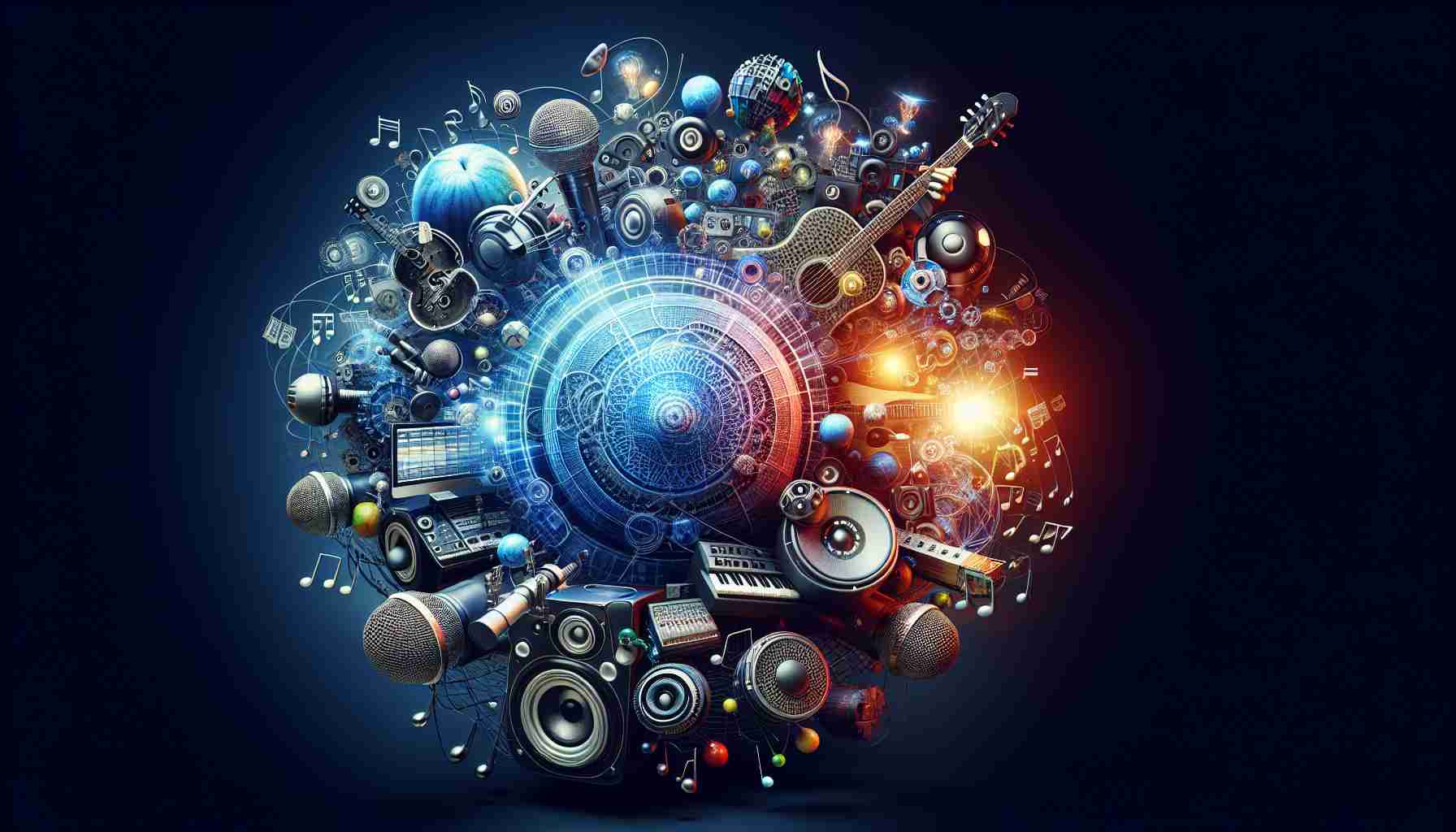The world of music and artificial intelligence collides once again as the International Contemporary Ensemble (ICE) teams up with PRiSM for an extraordinary event titled “Music, AI, and Co-Creation”. Taking place on May 16, 2024, at the ever-evolving venue Roulette Intermedium in Brooklyn, this showcase promises to push the boundaries of contemporary music through cutting-edge technological innovations.
Featuring six world premieres by renowned composers Emily Howard, Sam Salem, Bofan Ma, Megan Steinberg, Zakiya Leeming, and Robert Laidlow, this performance is set to amaze audiences with its innovative approach. The works presented will harness the extensive range of experimental tools developed by PRiSM, allowing for the generation of music using artificial intelligence techniques. Additionally, the showcase will introduce new machine listening software, developed by Hongshuo Fan and David De Roure of PRiSM, enabling real-time gesture recognition and classification.
“The marriage of art and technology has always fascinated me,” shares Emily Howard in anticipation of the event. Through this collaboration with PRiSM and ICE, Howard expresses her excitement about exploring new artistic and technological frontiers. Her sentiment is echoed by other artists and composers involved in this groundbreaking showcase.
The performance will feature an exceptional lineup of performers, including vocalists Alice Teyssier and Fay Victor, whose captivating voices will be accompanied by a talented group of instrumentalists. Among them are Josh Modney, Mariel Roberts, Isabel Lepanto Gleicher, Jonathan Finlayson, Dan Lippel, Greg Chudzik, Nathan Davis, and Levy Lorenzo. Under the baton of Vimbayi Kaziboni, these musicians will bring the six new compositions to life, creating an unforgettable auditory experience.
The event is scheduled to start at 8 p.m. local time, giving attendees the opportunity to witness the seamless fusion of artificial intelligence and human talent in real-time. Prepare to be astonished as the worlds of music and technology collide, resulting in a truly unique and boundary-pushing performance.
FAQ
Q: What is the purpose of “Music, AI, and Co-Creation”?
A: The purpose of this event is to showcase the collaboration between the International Contemporary Ensemble and PRiSM in exploring the intersection of music and artificial intelligence.
Q: Who are the composers involved in the showcase?
A: The showcase will feature world premieres by Emily Howard, Sam Salem, Bofan Ma, Megan Steinberg, Zakiya Leeming, and Robert Laidlow.
Q: What role does PRiSM play in the event?
A: PRiSM’s experimental tools for generating music using artificial intelligence techniques, as well as their machine listening software for real-time gesture recognition and classification, will be utilized in the performances.
Q: Who are some of the performers involved?
A: Vocalists Alice Teyssier and Fay Victor, along with instrumentalists such as Josh Modney, Mariel Roberts, Isabel Lepanto Gleicher, Jonathan Finlayson, Dan Lippel, Greg Chudzik, Nathan Davis, and Levy Lorenzo, will all be part of the performance.
Q: When does the performance start?
A: The performance begins at 8 p.m. local time.
The field of music and artificial intelligence is a rapidly developing industry that holds immense potential for innovation and creativity. With advancements in technology, composers and artists are now able to explore new frontiers by incorporating artificial intelligence techniques into their musical compositions. The collaboration between the International Contemporary Ensemble (ICE) and PRiSM in the event “Music, AI, and Co-Creation” is a testament to the growing interest in this field.
According to market forecasts, the global artificial intelligence in music market is expected to witness significant growth in the coming years. This can be attributed to the increasing adoption of AI technologies in the music industry, as well as the demand for personalized and unique musical experiences. The use of AI in music composition, performance, and production allows for the creation of novel sounds and musical structures that were previously unexplored.
One of the key issues related to the use of AI in music is the balance between human creativity and machine-generated algorithms. While AI techniques can assist in the composition process, there is ongoing debate about the role of human intervention and the preservation of artistic expression. Critics argue that relying too heavily on AI may lead to a loss of human emotion and authenticity in music. However, proponents of AI in music believe that it can serve as a powerful tool for expanding creative possibilities and pushing the boundaries of traditional music genres.
To delve deeper into the world of AI in music, you can explore the following related links:
– musicx.ai: This website provides insights into the latest developments in AI and machine learning in the music industry. It offers resources, articles, and case studies that highlight the fusion of technology and music.
– Music Business Worldwide – Artificial Intelligence: This section of the website covers news and analysis on the impact of artificial intelligence in the music business. It explores topics such as AI-driven recommendation systems, music composition algorithms, and the potential disruption of traditional music distribution models.
– Forbes – How Artificial Intelligence Is Revolutionizing The Music Industry: This Forbes article provides an overview of various applications of AI in the music industry. It discusses AI-generated music, personalized music recommendations, and the potential of AI to discover new musical talent.
As the music industry continues to embrace artificial intelligence, events like “Music, AI, and Co-Creation” serve as platforms for artists, composers, and technologists to explore the possibilities of this dynamic field. By pushing the boundaries of contemporary music through cutting-edge technological innovations, these collaborations pave the way for a new era of musical expression.
The source of the article is from the blog karacasanime.com.ve

